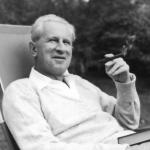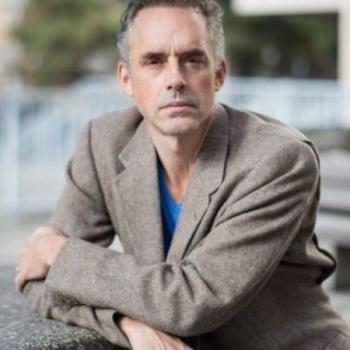In a previous series of posts, I talked about the four, primary domains of Christian study: theology, apologetics, church history and spiritual formation. Here I would like to talk about building a theological reading regiment. If one wants to become a well-informed Christian, it might be good to think about how to read and what kinds of books one should read.
This is especially important for those interested in full-time ministry. However, it should extend to all Christians serious about disciplining the mind and “taking every thought captive to obey Christ” (2 Cor 10:5). In order to act Christianly in the world, we must first think Christianly. If we are to do this properly, we will have our work cut out for us (just as anyone who tries to do anything properly will have their work cut out for them).
Two Approaches to Reading
There are many ways to approach reading, but for sake of brevity I will suggest two types: a narrow and a broad approach. I will define these simply for the sake of clarity.
To read narrowly means limiting the range of types of books one reads for the sake of gaining mastery in a specific field of inquiry. Reading narrowly is something we all do to some extent, since no one can read literally everything. As much as we might be interested in reading Shakespeare, as well as reading about late 17th-century Japanese wood carving or the latest developments in laser technology, we simply cannot read about them all (well, one could, if one were to choose exactly these three areas, but it is unlikely anyone will).
Alternatively, to read broadly means reading books from a greater range of genres or topics so as to attain a more general knowledge. The broader one reads the more generally well informed one will be. However, the broader one reads, the more specialization suffers.
It is important to note that the Church needs both kinds of readers. It needs specialists who read narrowly in a particular area of religious knowledge, as well as generalists who can speak well on many issues, even if not with equal depth on any particular one. Generalists also need to be the ones who connect people across specializations, knowing who are the specialists in a given field or domain. In this way the generalist is analogous to the old telephone board operator, plugging Christians who are interested in going deeper into the work of experts, should the generalist’s answers not match the level of inquiry.
As an example, if someone really presses me on the metaphysics of necessary being, I don’t try to answer them once I realize I have exhausted my knowledge. However, I do know where to point them to find an answer (or, at least, a better explanation than I could give).
Approach #1: Reading Narrowly
The more one narrows the range of types of books read, the more expertise one will achieve in an area. For example, the average Old Testament scholar will have a minimum range of reading that includes the following types of literature:
- the actual Hebrew text of the Hebrew Bible (the OT)
- the repository of other, extant Ancient Near Eastern literary texts available for research (Babylonian, Akkadian, Egyptian etc.)
- the historic rabbinical literature expositing the Hebrew Bible
- other texts discussing the historical, cultural and material background data tangential to the production of the Hebrew Bible and other ANE texts (e.g., archaeological journals, language studies, etc.)
- the Greek inter-testamental texts, the New Testament and some Greco-Roman historical texts
This is already a lot of material to cover, even though it is an incredibly narrow subset of all the literature one could choose to read. Yet, one might narrow this set even further. An Old Testament scholar who chooses to pursue a life dedicated to the transmission of the Old Testaments texts would need to have read most of the main works in the above categories to become an expert in transmission.
However, after attaining this more general knowledge, he or she could further limit their reading to just textual criticism. They could choose to only study the ancient manuscripts themselves and the particularities involved with their production and transmission over time. There are scholars who, in doing just that, become experts in very specialized areas of knowledge.
With respect to the transmission of Old Testament texts, for example, I cannot think of anyone more specialized than the eminent scholar Emmanuel Tov. Yet Tov’s work is so specialized that only a minute fraction of the reading population will ever know his name or his work. At the same time, those who are a part of that minute fraction of readers will benefit greatly from someone so specialized. (I am sure Emmanuel Tov reads more than just about OT textual criticism, as all readers of literature do. But, I use him as an example of someone who is the top expert in a very particular field of theological and historical inquiry).
Approach #2: Reading Broadly
In contrast to reading narrowly for the sake of achieving expertise, one can, and many should, choose to read more broadly. While reading broadly does dissipate one’s grasp on any given subject, it is important to the life of the Church to have Christians who are well-equipped generalists. The more broadly we read, the greater sense we have of the bigger picture of the Christian worldview and life more generically. To read too narrowly could lead one down a scholarly rabbit hole which, in turn, might have the unintended consequence of making one’s knowledge set too irrelevant to the culture at large.
Of course, as I already mentioned, one cannot read too broadly either. There must be some bounds on a chosen range of topics. I have already mentioned the four primary areas of study for the Christian. But, as I will lay out below, this range should be extended. This is especially the case for pastors who want to be theologically and culturally well informed. The reading regiment I lay out below is a broad one, since I am more of a generalist than a specialist (at least at the moment). A broad regiment might be too taxing for someone interested in purely academic work in a specified area of Christian study. But it is the better approach for those involved in more hands-on ministry.
At the same time, to be a good generalist is potentially the harder of the two tracks, as important nuances can be lost the more broadly one reads. In this sense, the regiment I will suggest is really not all that broad, as every area of reading I acknowledge is in some way organically connected to the Christian life.
Prioritizing Your Reading
One more consideration is how to create a prioritized hierarchy of reading. What I mean by this is that some types of knowledge are more important than other types of knowledge when it comes to the Christian faith. Thus, we should consider intentionally prioritizing some kinds of books over other kinds and some genres of books over other genres.
The obvious idea being that some things are simply more relevant to the Christian faith, while others are less relevant (even if not irrelevant). For example, recent advances in dental technology related to the material from which crowns are made may be very relevant to me, a Christian who grinds his teeth, but it is not very relevant to Christianity. As such, since we are all limited in time and resources, we have to think carefully about how to prioritize our reading; just as we have to think about priorities in pretty much every other area of our lives.
First-Order Reading
As far as building a prioritized hierarchy of reading, I would suggest the following as the right order, or at least a good order, for pursuing Christian knowledge. These are what I would call “First-Order Reading” material:
1. The Bible
We must read the Bible first, with the greatest frequency and with the greatest intensity. The reason for this is obvious–biblical knowledge is unique from all other knowledge. It is “revealed” knowledge. The Bible is not the word of men, it is the Word of God presented to us through the inspired and infallible words of men. It is the primary source of all Christian knowing.
However, there are two ways to read the Bible–devotionally and for theological study. I would prioritize devotional reading first, and then reading for theological study. The best way to do this would be to read devotionally first thing in the morning and then carve out time to read for theological study after.
If possible, however, one should not neglect either approach, as each approach speaks to a different part of our person. The first speaks to our heart or spiritual instincts, the second to our intellect and rational capacities. Devotional reading calls us to deeper relational knowledge of God and motivates moral action in our life. Theological study helps us to make right judgments about truth and error, keeping us from straying from sound doctrine and from being deceived.
2. Biblical Commentaries
With regard to theological study of the Bible, one should employ the use of the best commentaries available, both for the Old and New Testaments. That said, not all commentaries need to be written by believing Christians per se. For example, I often use Jewish Commentaries, like the JPS Torah Commentaries, for the Hebrew Old Testament. What counts here primarily is the quality of the exegetical work.
Nevertheless, for those just embarking on a program of Christian study, it may be beneficial to start with commentaries by scholars who are known to be authentically Christian believers (i.e., also called “theologically conservative Christians” in most circles). There is nothing wrong with prioritizing Christian scholars, so long as they are also recognized as being experts in their field. In general, the recent trend is that the two usually go together. Regardless, the main purpose for reading commentaries is to become an expert in the Bible. That should be the number one goal of any Christian.
For more on the best commentaries for OT and NT, see here and here.
3. The Church Fathers
After reading the Bible devotionally and for theological study (with the use of commentaries), the next most important thing to read is the early Church Fathers. As I have written about before, there are several reasons for this: cultural, theological and historical. In short, we need to know both the history of those who have come before us, and we need to understand how they approached the Bible and, in doing so, came to formulate what we now understand as Christian dogma (e.g., like the Trinity or the dual natures of Christ).
Of course, we should not only read the Church Fathers to understand how the dogmas of the Church developed. The Church Fathers can also offer practical wisdom and pastoral guidance about the life of the Church in the world. This pastoral wisdom is often lost on later generations who have forgotten or neglected the Church Fathers. Our own contemporary culture might reject it out of a sense of “chronological snobbery,” thinking that the ancients really have nothing to teach us. But this is so far from the truth it doesn’t even rise to the level of being false.
Further, we must read the Church Fathers in order that we might better attempt to reconcile and reform ongoing issues amongst “separated brethren” today. After the Bible itself, we should know what the early church believed, something the Reformers were adamant about doing. We do this to seek diachronic unity with the Body of Christ that existed before us and synchronic unity with other Christians today.
Finally, the Church Fathers give us confidence in the realm of apologetics, as we come to discover in our reading of them, that there really is no challenge to Christianity that has not already been raised and, in being raised, also addressed.(To read the Church Fathers chronologically, one should take advantage of Philip Schaff’s 38 Volume The Early Church Fathers, most of which can be found online for free).
4. Systematic Theology
After the Bible and the Church Fathers, systematic theology is the next logical area of study for the Christian student. Reading good systematic theologies, as well as a good variety of them, will continually reacquaint students with the doctrines of the Church, i.e., with the “what we are supposed to believe is true given revelation, and why we should believe it” of our faith.
However, reading good systematic theology will also remind the student of the diversity and difference that exists within the ecumenical Church. There is no getting around the fact that the Church in this world has been and continues to be divided. Reading systematic theology from various traditions: Reformed, Roman Catholic, Easter Orthodox, etc., will help the student to confront that reality and process it accordingly.
5. Church History
The last area of “First Order” reading is books on Church History. This could cover many things, to include overview works that try to capture as much ground as possible (e.g., Justo Gonzalez’ The Story of Christianity) or books on more specific eras or areas of the Church, like Philip Jenkins excellent The Lost History of Christianity.
In addition to studying church history in general, or the history of the church in a particular time (e.g., the Reformation) or place (e.g., Northern Africa), one should also read about the Church’s great saints. Thus, biographies of men and women who have faithfully and powerfully served God are also an important part of any reading regiment, for they inspire us to the same level of commitment and good works.
Second-Order Reading
Second-Order reading does not mean second hand reading. It just means that reading in these areas is not quite as central to the development of the Christian mind as those above. However, they are important, especially as we look to engage with our culture and to evangelize our world.
1. Apologetics
The most important area of second-order reading is Christian Apologetics. Aside from knowing and preaching the plain text of the Bible, educating oneself in the art of Apologetics is the most important thing one can do to evangelize effectively. I have outlined three types of Christian Apologetics in previous posts: philosophical, historical, and cultural.
2. General History
To not know history is to be doomed to repeat it (or so it has been said). As members of a historical faith, we must study history, and as much as we possibly can. First and foremost we should study ancient history, especially the history of the cultures and peoples extant during the writing and transmitting of the Bible.
However, we also should study the history of our own culture, the culture in which we are evangelizing. The more we know our own culture, how it has been shaped and where it might be going, the more effective we can be in our outreach for the Gospel. This was something Paul understood (see Acts 17) as well as early church fathers like Clement of Alexandria (see “Exhortation to the Heathen“).
3. Philosophy in General
It is the philosophies of men that shape the world, regardless of what some ignorant scientists might say. In addition to history, therefore, we have to read the history of ideas. We need to know, minimally, the big ideas and the big names that have developed them. Understanding philosophy goes a long way in our proclamation of the Gospel, as well as in the defense of historic Christian doctrine within the church. Here is a great resource to get one started, and another to go deeper.
Many controversies, perhaps all of them, within the church today are due to some philosophy that has crept into the Church’s theology. As C.S. Lewis rightly pointed out: “Good philosophy must exist, if for no other reason, because bad philosophy needs to be answered.” And so if anything one should study philosophy for the sake of combatting against it. If one has no awareness of Marxism, Critical Theory, Social Theory, Physicalism, Nominalism, Existentialism or other bad philosophies, then one will struggle to combat their effects in the Church, even if one has a vague sense of the damage they are doing.
Finally, the study of logic can only benefit the Christian student, especially since our faith in supremely rational and our God a God of reason and order.
4. Literature
Karl Barth once said he considered theology to be a subset of the Humanities. While I would technically disagree with Barth, there is a sense in which literature matters to theology. The connection between great literary works, both prose and poetry, lie in their capacity to demonstrate deep truths about the human condition in a non-didactic way, i.e., through story or poetic verse.
The Bible is, in large part, also a story and much of its teachings about God, man and the world are couched in literary genres and poetics. And so, to read the Bible is also to read great literature, even if it is more than just that.
Finally, most of the great literature of the Western world is biblical. Dante, Milton, Shakespeare, Dostoevsky, drew as much, if not more, from the Bible as from the Greco-Roman mythical heritage. These works of art act as doorways to biblical truth, expressing the Christian faith in powerful and enduring ways regardless of their own time and place in history. To be ignorant of great works of literature is a travesty for the Christian soul, or any soul for that matter.
5. Sociology and Psychology
The “soft sciences,” as they are rightly called, can still be very informative in some areas of Christian life. Good sociology and psychology can supplement theological anthropology and help us to better understand how to engage with both individuals and social groups with whom we live our lives together.
However, at the same time, much of the bad philosophy mentioned above has come to us through these disciplines in particular. Thus, we should read sociology and psychology texts with discernment, critical thinking and caution. Currently there is too much reliance on these disciplines within the Church. They must always be tempered with biblical truth.
6. The Natural Sciences
While it can be hard for the layman to read in the natural sciences with any kind of serious detail, it is good to know the big theories as best as we can. The natural sciences are key to our understanding of God’s general revelation. Thus, to know something of cosmology, physics and biology and the main theories that shape each, can be very beneficial to our defense of the Christian faith. While we cannot all be experts, like Dr. James Tour, we can at least strive for awareness in the sciences.
An obvious example of this would be a general understanding of where current physics is on the question of the origin of the universe. Several 20th century discoveries in cosmology have cemented the fact that the universe began to exist, a truth which acts as a foundational premise in one of the more popular arguments for God’s existence (see the Kalam Cosmological Argument here).
7. Politics and Law
Finally, one should not neglect the study of politics and law, both of which matter to how Christians should live and serve within their community. As Christians we believe that there is a just way, and an unjust way, to govern a people. To fail to understand politics and law is to be ignorant of the concrete mechanisms through which justice can be served.
Conclusion: You Have Some Reading To Do!
It is a long list of categories and topics, which raises the question of “how much and how often?” But that will be up to each individual given their particular life context. However, these are the fields of knowledge most relevant to the Christian life. Pastors especially should try to be engaged in all of these areas, but, as I laid out, in this order (or at least in a similar order).
In 1995 church historian, Mark Noll, wrote a watershed book, The Scandal of the Evangelical Mind. The book begins with the following statement:
The scandal of the evangelical mind is that there is not much of an evangelical mind.
Noll, Scandal, 3
That is a rather unfortunate statement, nevertheless it is true. As such, we must as Evangelicals take seriously the life of the mind. The main reason we see our culture decaying before our very eyes, is simply this: Christians hardly contributed to the intellectual life of American in the 20th century. If that continues, who knows where we will be at the end of the 21st century? We already have a culture so penetrated by bad philosophy that it cannot distinguish between men and women. Only God knows what theories of men might engender yet, if no one is smart enough to stop them at the source.














